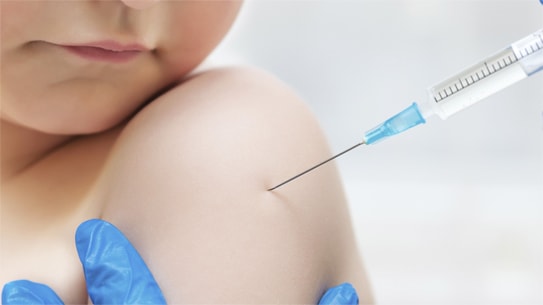Which wounds are susceptible to tetanus infection?
Experts recommend that if you are stabbed or stepped on a sharp object (glass, nail, metal...) that causes skin tears and bleeding, you should not be subjective because this wound can easily lead to tetanus infection.
Normally, in cases of foreign objects such as sharp thorns, pieces of glass, splinters, metal... piercing the hands and feet, many people are often subjective because they think it is a small, not serious wound. However, according to Master, Doctor Nguyen Trung Cap - Deputy Head of the Emergency Department (Central Hospital for Tropical Diseases), these seemingly small wounds can be harmful if not treated properly and promptly.
Dr. Nguyen Trung Cap said that if you are unfortunately stabbed by a sharp object, after treating the wound, you should go to a medical facility to get a tetanus shot because you don't know if the foreign object contains tetanus-causing bacteria or not.
Many people often mistakenly think that only stepping on iron nails or rusty metal can cause tetanus, but in fact, small scratches can also easily cause this condition.
 |
| Experts recommend that if you are stabbed or stepped on a sharp object that causes skin tears and bleeding, you should not be subjective because this wound can easily lead to tetanus infection. |
Tetanus is an acute infectious disease with a mortality rate of 25 to 90%. The disease is caused by a type of bacteria called Clostridium tetani. Tetanus-causing bacteria are found everywhere in soil, sand; animal and poultry feces; sewers...
Here, tetanus bacteria easily penetrate open wounds, even if they are just small scratches. They develop in anaerobic conditions (crushed, dirty wounds, no air, tightly bandaged wounds...). Then, they will penetrate the body, enter the nervous system and cause muscle stiffness or muscle spasms when stimulated, which is very dangerous.
Most cases of tetanus infection today are mainly in young and middle-aged people. These people are often not vigilant about tetanus infection and therefore do not get vaccinated against tetanus, or were vaccinated many years ago but now have reduced protection.
When suffering from this disease, patients are often hospitalized with fever, difficulty breathing, needing a tracheostomy and ventilator support, body stiffness, and repeated convulsions... If not treated promptly, the disease will progress more and more severely and the risk of death is very high.
According to medical specialists, tetanus has a very strong vitality, it can not be killed by boiling or sun exposure. When entering a wound, even small wounds such as scratches and abrasions, patients should not be subjective with tetanus bacteria. Because in this environment, tetanus spores can still escape the shell to develop into tetanus bacteria, multiply and secrete toxins without causing swelling. That is the reason why the wound is small, dry, and closed but the toxins still develop and cause tetanus.
Tetanus spores are very dangerous, and they can be found everywhere on earth such as soil, sand, animal feces... Therefore, anyone with a wound, even a small wound, is at high risk of being invaded by tetanus spores causing tetanus. People should not be careless leading to tetanus infection.
Therefore, as soon as a person is stabbed by a sharp object, it is necessary to properly treat the wound to prevent bacteria from entering.
Some things to do in case of stepping or being stabbed by a sharp object:
- Do not try to pull out a sharp object if it is deeply embedded in the body, this can make the wound worse and lead to bleeding.
- Use a completely sterile gauze pad to wrap around the sharp object (long, deeply inserted sharp object).
- Place padding around sharp objects to prevent them from moving.
- Minimize strenuous exercise.
- Take the patient to a medical facility for timely first aid.
- In case of shallow sharp objects that can be pulled out directly by hand, wash your hands before touching the wound. If the wound is bleeding slightly, hold the bleeding area under cool running water for a few minutes. This will remove and wash away any elements that may cause infection, reducing the possibility of it entering the bloodstream.
- Do not scrub the wound while cleaning as this may make it worse. Do not use your mouth to suck dirt from the wound. Dry and cover the wound.
- Use sterile instruments to dry and then immediately cover the wound with a waterproof bandage. Many people often do not bandage the wound because they think it is not too serious. But it is best to bandage it to avoid infection and dirt from entering later, especially when the puncture is on the sole of the foot or hand.
 |
| Tetanus vaccine is effective for 10 years. |
Cases that need tetanus vaccination
Pregnant women:Tetanus vaccination for pregnant women protects the baby from neonatal tetanus. Just 2 injections will keep both mother and baby safe.
Farmers, people working on farms:These are the subjects that are susceptible to tetanus due to frequent contact with the environment of fields, mud, livestock and poultry manure, foreign objects... where many bacteria reside. Therefore, when encountering small wounds such as skin scratches, bleeding during work, tetanus infection is very likely to occur. Vaccination is necessary to prevent the disease.
Construction workers:People who are often in contact with metal, concrete, iron and steel. The risk of injury from sharp objects is inevitable. Therefore, you should get a tetanus shot to protect yourself from unfortunate incidents.
According to Family & Society

